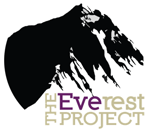Female Executives at The Center Of Change and Innovation In Corporate America [REPORT]
February 26, 2016
 Female executives are creating corporate cultures of change and innovation, according to a newly published research study conducted by The Everest Project. Eve of Change: Women Redefining Corporate America examines the influence of women’s leadership in today’s global economy and provides insight into how the intersection of gender, race, ethnicity, culture, and sexual orientation impacts women in the workplace.
Female executives are creating corporate cultures of change and innovation, according to a newly published research study conducted by The Everest Project. Eve of Change: Women Redefining Corporate America examines the influence of women’s leadership in today’s global economy and provides insight into how the intersection of gender, race, ethnicity, culture, and sexual orientation impacts women in the workplace.
The study’s findings are the result of over two years of confidential interviews with 132 of some of the most senior-level female executives in the United States. Participants—who identified as Black, Hispanic, LGBTQ, Pan Asian or White—represented over eighty Fortune 500 corporations from a range of different industries and regions. An additional 260 executive level interviews with the interview subject’s manager and her direct report were conducted for a more comprehensive perspective. In total, The Everest Project’s findings are based on 392 interviews.
Key Research Findings
Below are the five key findings presented in Eve of Change: Women Redefining Corporate America:
- Women are leading change and transformation in their organizations
- Over half of the change initiatives catalogued in the Everest interviews represented strategic or structural change that women led, with significant organizational impact, from contributing billions of dollars to bottom lines, building new businesses, or rebuilding failing ones, to inspiring social movements beyond their corporate doors. They lead from the known to the unknown, transforming the hearts and minds of their people in the process and creating cultures more open to innovation.
- Women embrace smart risk
- Contrary to popular belief, women take risk – often, significant risk on behalf of their organizations. Being unafraid to fail, throwing assumptions out the window, trying new things and voicing a contrarian opinion: these are just a few ways that interview subjects take risks, which they see as a critically important aspect of leading change.
- Humility is the new power tool
- Humility, often considered a weakness, is the new power tool in leadership. In this era of flat organizations and a flat world where everyone is called upon to collaborate and work effectively across silos, humility is a critically important skill. When used strategically, humility fosters a vibrant environment where it’s “safe to make change and to break some things” – fertile ground for innovation.
- Collaboration is not consensus
- In the new reality of hyper connected environments, collaboration is king. If consensus involves equal voice and an emphasis on collective decision making, collaboration is a different animal. Leaders are always at the helm, responsible for taking action that is best for their business.
- Difference is more
- Being different means having more to contribute and collaboration is the currency for navigating a flat world. Women who have figured out how to use their gender, race and ethnicity, sexual orientation, and cultural background, as part of their leadership toolkit, bring far more to the table for their corporations and teams.
Conclusion: Women today are designing a new corporate culture for a time of rapid change. They possess a leadership vision, approaches, and skill – that have not been previously identified and have too often gone unrecognized, underappreciated, and misrepresented in mainstream research. Women use that portfolio of skills and qualities as part of an integrated process for fostering innovation. For women leading this charge, innovation is not a self-contained endeavor. It’s a process that evolves and emerges, fashioned from a culture that interview subjects have imagined and have made real.
“The findings are stunning and speak to the transformative impact women executives are making at their organizations,” stated Lily Tang, President and Co-Founder of The Everest Project. “Contrary to the constant messages about what women have to do to succeed, women are consistently succeeding in leading change; from the massive to the incremental.”
“Our study offers companies a blueprint on how to create a corporate environment that not only empowers women, but also their business,” said Pamela Carlton, Co-Founder and Lead Researcher of The Everest Project. “We hope our findings will help rewrite the script for business success and illuminate how women are shaping corporate cultures and unleashing creativity for sustainable innovation.”
To download report CLICK HERE.





























